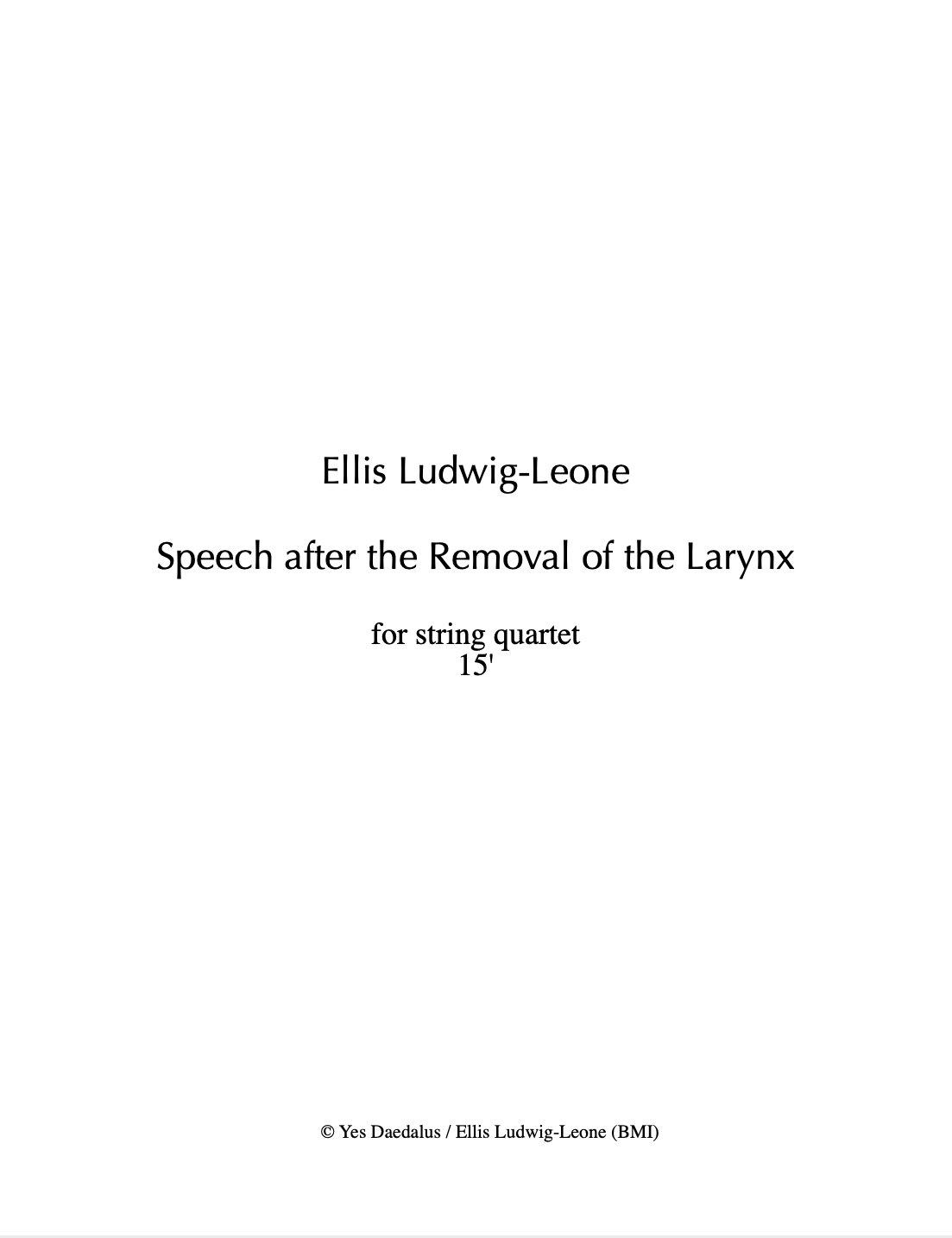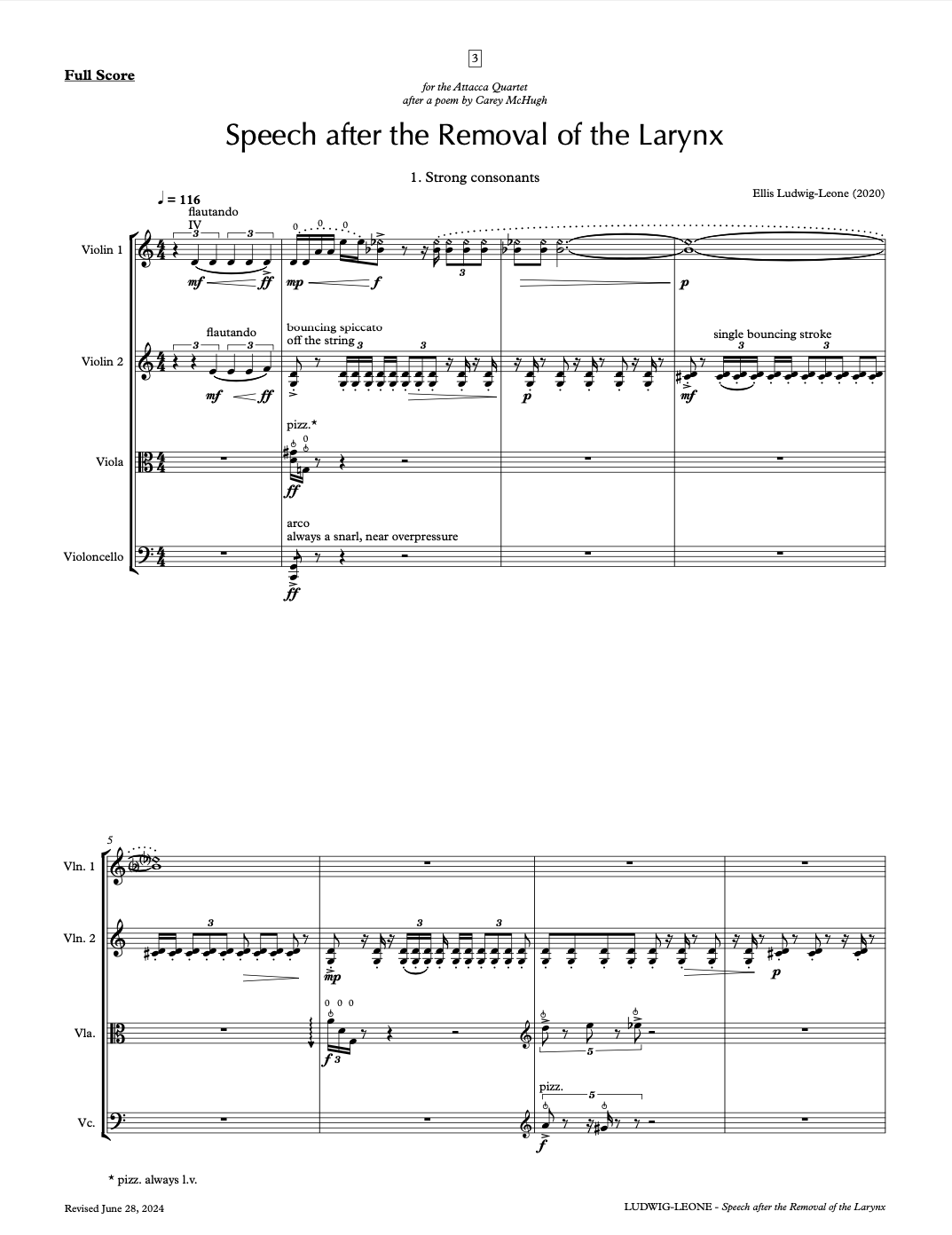4 players: string quartet - Speech after the Removal of the Larynx
4 players: string quartet - Speech after the Removal of the Larynx
Couldn't load pickup availability
Ensemble: string quartet
Duration: 15 minutes
Written for: Attacca Quartet
Premiered: Big Ears Festival, First Baptist Cathedral, Knoxville, Tennessee
Published by: Yes Daedalus Music
Note:
I don’t often set poetry as lyrics, because poems have their own delicate music, and to overwrite that with mine feels like trampling on a carefully tended garden. But as soon as I read this poem by Carey McHugh, I knew I wanted to try to translate the feeling it gave me into music. There’s a buzzing energy to the words, so much auditory imagery packed into six and a half lines. Every word is alive but slightly electrified, supernatural. It’s warm and organic but also thorny, shaded and a bit dangerous. Semantic meaning dances away maddeningly, just out of reach.
I decided to organize my piece around four lines in the poem that evoked, to me, the sounds of a human voice, without the clarifying logic of speech.
The first movement, “Strong Consonants,” evokes stuttering and chattering teeth, punctuated by violent shivers. I allowed this stuttering texture to evolve into a quieter, more ruminative place by the end of the movement (“It is quiet here”).
For the second movement, I took her first instruction at its word: “This is a transcription of the distances between sounds and their captors.” I imagined aggressive moments of overpressure tremolo as the bars of a prison, keeping the sounds of the instruments separate from their true selves.
The third movement, “Currents,” took its inspiration from the third sentence: “There are some currents that take up anything that falls.” I imagined a current of air moving in and out of the lungs. The beginning of this movement maps a “breathing” pattern of short cadences that resolve in unexpected ways. Eventually these short little breaths turn into longer, more Romantic lines that weave into and out of each other, flowing around little bumpy interruptions like rocks in a river.
The fourth movement, “Silence,” comes from the second sentence: “My earliest memory: silence, a waterbird’s insistence, hovering.” I tried to set this programmatically, with little insistent bird cries and wingbeats that give way to a hovering swarm (“A swarm of hornets is articulate”).
As I wrote this piece, the meaning of her poem drifted in and out of focus for me, becoming both clearer and further away. I have lived for hours with these lines, yet I am still excitingly frustrated by it and unable to articulate what any of it means. But I suppose the answer has been in there all along, generously supplied by Carey near the end: “I am satisfied if the strong consonants trigger memory.” If the experience of hearing my piece knocks loose a memory, or takes you to a dream world both familiar and strange, I am happy.
Perusal score: view here
Share



